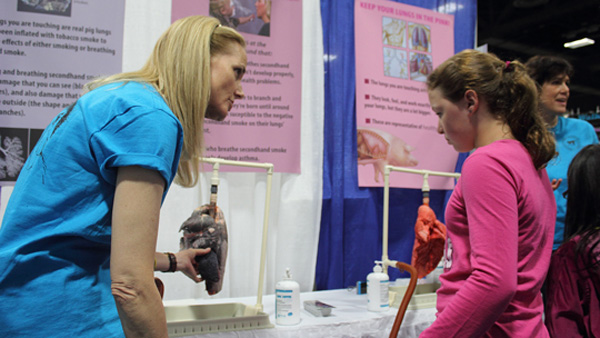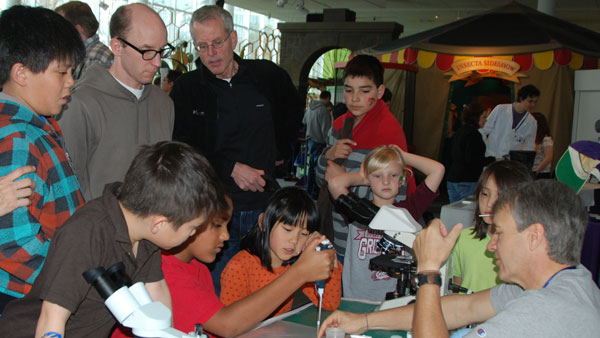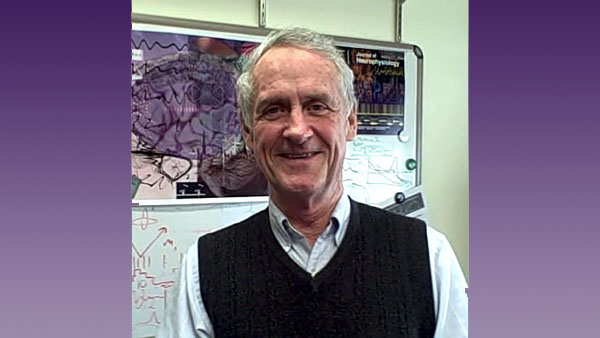
Representatives from the National Primate Research Centers (NPRCs) spoke to an estimated 4,000 people who visited the NPRC booth at the 2nd annual USA Science and Engineering Festival from April 27 to April 29 in Washington D.C.
Billed as “the largest celebration of science in the U.S.,” the festival featured more than 3,000 interactive exhibits, more than 100 stage shows and 33 author presentations. More than 150,000 people attended. President Barack Obama attended a special event at the festival on April 27 to promote STEM (science, technology, engineering and mathematics).
The NPRC booth included a flip board with answers to common questions about animal research and a set of pig lungs (healthy and “smoker’s”) to demonstrate the effects of second-hand smoke on lung development. The booth also supplied NPRC bookmarks and information on all eight NPRCs.
The booth was staffed by: Kathy West and Keidri Herring, California National Primate Research Center (CNPRC); Diana Gordon and Steve Gordon (spouse), Oregon National Primate Research Center (ONPRC) ; and Jordana Lenon, Wisconson National Primate Research Center (WNPRC). Other NPRCs including the Washington National Primate Research Center (WaNPRC) helped organize the booth as part of the NPRC Consortium Outreach Working Group.
“We had many positive comments and interested visitors, and a number of people specifically thanked us for the NPRCs’ research efforts,” West said.
Special visitors to the festival included: The Myth Busters; Arne Duncan Secretary of Education; Bill Nye, the science guy; best-selling authors; astronauts; Nobel Prize-winner Carol Greider; and a rock guitar performance by Dr. Francis Collins, NIH director.

